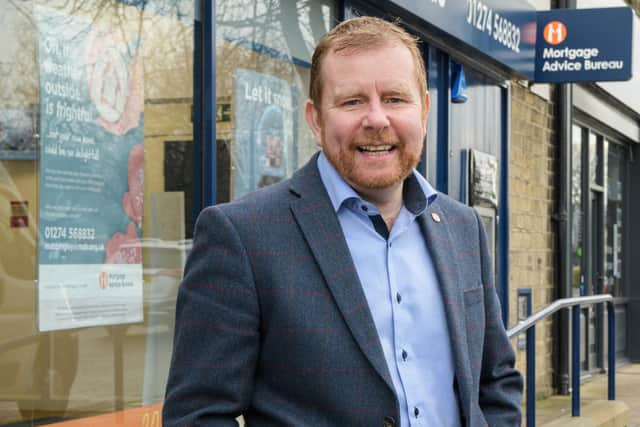Expert Andrew Milnes on getting a mortgage on homes affected by the cladding and building safety crisis
Otherwise known as ‘mortgage prisoners’, the experience of these individuals is a direct result of the fact that many lenders refused to mortgage these properties due to the previously unknown fire risks and associated remediation costs.
If that wasn’t enough, the ongoing issue has also left owners of leasehold flats forced to pay thousands for interim safety measures and high insurance costs, leaving many in debt and some at risk of bankruptcy.
Advertisement
Hide AdAdvertisement
Hide AdThese leasehold homeowners also need to go through the motions of obtaining the correct fire safety certification to demonstrate compliance, whether via showing that cladding is being removed or proving that the removal of dangerous materials are covered by leaseholder protections/a government scheme.


This can prove to be a stressful, time consuming process with many still waiting for answers.
However, hope is on the horizon, with attitudes towards cladded properties beginning to show signs of positive change.
The stance of UK lenders is becoming clearer, with many more willing to loan to those who own or are looking to buy affected properties .
Advertisement
Hide AdAdvertisement
Hide AdUntil this point, there was a lack of updated guidance on affected properties, therefore restricting risk assessments and ability to loan.
However, long-awaited guidance from the Royal Institution of Chartered Surveyors (RICS) regarding the valuation of affected properties has now been published to combat this.
Furthermore, a government-driven agenda to combat the crisis is now being led by Secretary of State for Levelling Up, Housing and Communities, Michael Gove.
This includes the deadline for developers to sign a government contract to fix buildings that they own/are responsible for which contain fire safety defects.
Advertisement
Hide AdAdvertisement
Hide AdFailure to do so will lead to the prevention of planning permission being granted in order for developers to construct new homes.
Meanwhile, here in Yorkshire, mortgage brokers have experienced an uptick in the number of enquiries from customers asking if their properties are now mortgageable, as well as a reinstated interest in the number of people wanting to place their cladded properties back on the market.
From this, you can see that we have experienced more movement in the last six months than over the past five years and this is an indicator that the market is slowly improving for owners of leasehold properties impacted by the crisis, despite more needing to be done to fully rectify the situation.
If you are the owner of an affected property, the best advice remains to speak to a mortgage broker as, while lenders are taking a more positive approach, no two circumstances are the same and each property will need to be examined on a case-by-case basis.
Advertisement
Hide AdAdvertisement
Hide AdA mortgage adviser will take care of these complexities and will tailor your application to lenders that would be more willing to let you borrow in line with their specific criteria.
Mortgage advisers will also help to take away some of the strain from what we are sure has already been a stressful and challenging experience.
Andrew Milnes is business principal at the MOrtgage Advice Bureau, Bingley